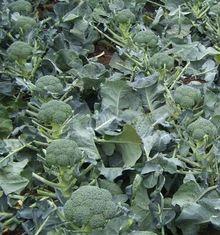
Broccoli and cauliflower may reduce the risk of developing hereditary cancer, according to a recent study in New Jersey.
Cruciferous vegetables are high in sulforaphane, a compound previously shown to inhibit some cancers in rodents induced by carcinogenic substances, says research leader Ah-Ng Tony Kong, a professor of pharmaceutics at Rutgers University.
But this study focused on whether the compound might stop the occurrence of hereditary cancers.
Two groups of mice were fed sulforaphone supplements with their food for three weeks.
The first group experienced a decrease in the average number of polyps in the small intestine by more than 25 per cent. The second group, who were given twice as many supplements, had a 47 per cent reduction.
Kong said: “Our research has substantiated the connection between diet and cancer prevention, and it is now clear that the expression of cancer-related genes can be influenced by chemopreventive compounds in the things we eat.”



